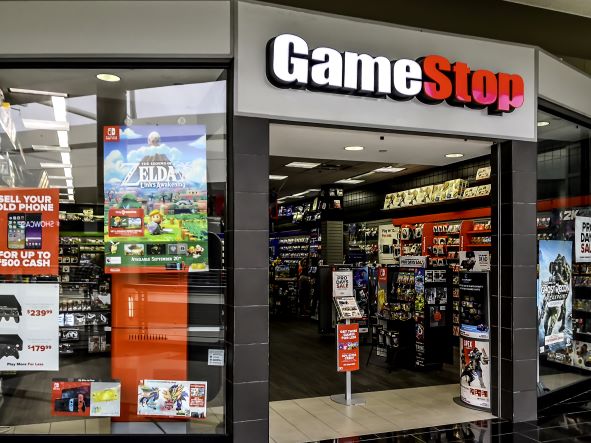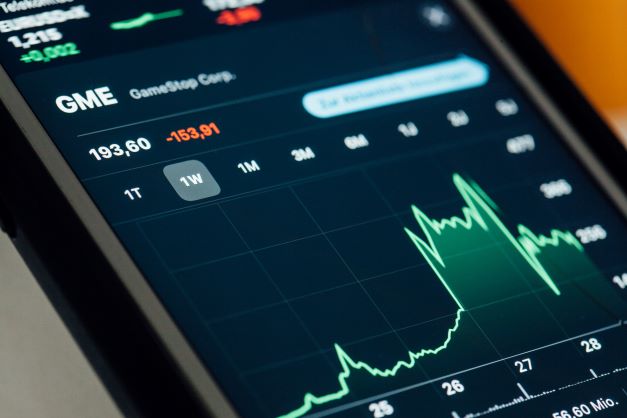Who could have predicted that a rag-bag group on the social media site Reddit would take on Wall Street and upend what we thought we knew about the st
Who could have predicted that a rag-bag group on the social media site Reddit would take on Wall Street and upend what we thought we knew about the stock market — that is, until it actually happened.
Some attribute the bizarre events around the trade in GameStop stocks to the rise in home-working, lockdown boredom, and the overconsumption of social media. Yet we’re nearly one year on from the beginning of the controversy and it still reverberates, as GameStop, or more accurately the trade in its stock, continues to hit the headlines. Despite their controversial status, meme stocks look here to stay. How should newbie traders approach the market in light of all this excitement?
Recap: what was the GameStop saga?
GameStop became one of the biggest stock market phenomena since the subprime mortgage bonds crisis in 2008. A few big hedge funds had pounced on what they viewed as a badly managed and seriously outdated bricks and mortar store on the brink of collapse. With its share price going nowhere, these investors began short-selling, which is when you bet on a decline in a company’s stock.
A Cinderella story
This short-selling, which was being carried out by several hedge funds, rubbed a few retail investors up the wrong way. Clubbing together on the Reddit online forum, users under the name ‘WallStreetBets’ decided to take on the professionals. They were unhappy at the idea of Wall Street insiders cashing in on the misery of a company about to close 450 stores nationwide. These Redditors struck back and bought GameStop shares en masse. Now, short-sellers needed GameStop shares to fall in value. Instead, the stock price skyrocketed as buyers poured in and the short sellers found themselves frantically trying to buy back the shares they had sold, in a desperate bid to limit their losses.
David vs. Goliath?
This looks like a perfect example of rough justice, carried out by the little guys against a powerful industry. But the picture that emerged from this episode is a little less black-and-white than that. Retail investors continued piling into GameStop, now dubbed a ‘meme stock’ because of the social media influence on its market capitalisation. As a result, Reddit users didn’t so much give Wall Street a dose of its own medicine as create chaos.
Looking back, we can see that this radical turn of events made the stock market seem more accessible than ever before. The question is whether this is wholly a positive development, or not. Much depends on who is doing the trading, and how aware they are of what they’re actually doing. Jumping into a market like this can be very dangerous, for professionals as well as the uninitiated. Here are some crucial takeaways for anyone thinking about starting to trade GameStop and other meme stocks.

Rationality not reactivity
Should a stock ever be a ‘meme’?
Meme stocks have proved to be a thrill-ride, and many are still making ripples on the market. BlackBerry, AMC and Bed, Bath & Beyond are examples of companies that have been subjected to the same investment strategy, if we can call it that, as GameStop.
However, retail investors pinning their strategy on social-driven trades tend to assume that the stock price will continue to inflate, and are crestfallen and out of pocket when it goes dramatically the other way. When AMC got the same treatment as GameStop, for instance, it saw a huge decline in its share price.
Big risk, uncertain reward
Traders should look at these meme stocks as examples of where herd mentality becomes a strategy, and this can often lead to chaos. Ask around and any seasoned trader will tell you that before you start trading, a strong risk management strategy is the most important weapon in your armoury. This will help protect you from market volatility, while a full understanding of a trade’s risk/reward may dissuade you from trading certain meme stocks altogether.
With regards to GameStop, many retail investors got lucky. As Charles Roblut at AAII suggests, ‘huge speculative gains realized over a short period of time are rarely attributable to skill’. The real skill is self-analysis and a diligent development of a sensible trading plan. The trader who is likely to succeed knows when to suppress their greed, while mastering their primal fear of losing money, by undertaking disciplined risk management.
For instance, stop-loss orders are vital tools which make you close a trade when you lose money beyond a predetermined percentage of your funds. This is one such example of how to practise a measured and diligent approach to your trading. To try these tools in a risk-free environment, Trade Nation’s trading simulator gives you a chance to develop your general trading skills, at no charge. Before hopping onto Reddit, we’d definitely advise getting a sense of how you react in a virtual preview of an unpredictable stock market.
Don’t follow the herd
FOMO is a vicious cycle
The GameStop story was not just about giving the hedge funds a taste of their own medicine. Rather, many retail speculators in meme stocks were probably just looking for something to do in the peak of pandemic lockdown.
Bear in mind that GameStop’s share price really took off to hit a high that hasn’t been matched since after Elon Musk referenced it in a tweet. This gives us an insight into the nature of this kind of trading. Unbeknownst to many at the time, there are four phases of meme stocks: early adopter, middle FOMO, late/FOMO, and profit-taking. While many buyers joined at this third juncture, this was not part of an overall strategy, but an opportunistic leap to make quick money. By this time it was too late, and the stock price had already peaked. Those new to speculating on margin need to look at the bigger picture, learn patience and develop a strategy which will help them identify potentially profitable opportunities. Exercising a disciplined approach to the trading process will help you ignore the dangerous tug of the dreaded ‘fear of missing out’.
Trading is not a game
In the beginning, the social media communication channels which turned boring old GameStop into a meme stock seemed to have levelled the playing field for the army of small retail traders. Instead, the dream of short-term profits and the thought of ‘gaming’ Wall Street proved to be an illusion that led to tremendous volatility and market disruption. Unversed investors, drawn to trading meme stocks, are not necessarily taking on the big guns. Instead they are taking on a large amount of market risk in the hope of short-term profit.
Of course, established investors have done this for a long time, leading to people’s deep mistrust of Wall Street. That doesn’t mean that the new boss, as it were, has to be the same as the old boss. The SEC ought to clamp down on all threats of stock market manipulation, but meme stocks don’t seem to pose the threat to the established order as some claim. Indeed, you could argue that playing the hedge funds at their own game does very little to, as Kenan Malik of the Guardian asserts, ‘diminish the miseries the market imposes on so many people’s lives’.



















































































































COMMENTS